Hello Ramanjit and other 802.3dm participants,
During this morning’s discussion I promised to share with the team my recreation of Ramanjit’s presentation, including the additional simulation results that Ramanjit had not had time to complete before the meeting. This all relates to
presentation
https://www.ieee802.org/3/dm/public/0325/ahuja_8023dm_01_031025_on_receiver_considerations_for_act.pdf.
Figures 1 through 4 below show how I was able to recreate Ramanjit’s simulation results. I deliberately used a slightly more pessimistic MDI echo (see Figure 2), with return loss that violates the agreed RL limit for 802.3dm. The MDI echo
transfer function in Figure 2 was used for both ends of the link.
Figure 5 shows the insertion loss and the return loss impulse response plotted on the same figure. The figure clearly shows that the echo (h11) is much smaller than the desired received signal (h21). This difference is then made even bigger
when the PSD of the upstream and downstream signals is also taken into account. The bottom line is that even for this exaggerated MDI echo,
there is no echo problem for ACT.
Figures 6 and 7 show the eye diagrams for the 2.5Gbps PAM2 and the corresponding 100Mbps receive signals. As in all our simulations, the eye is wide open and there is
no problem with echo and no need for echo cancelation.
Figures 8 and 9 show the eye diagrams for the 10Gbps PAM4 and the corresponding 100Mbps receive signals. As in all our simulations, the eye is wide open and there is
no problem with echo and no need for echo cancelation.
On slide 10 of his presentation Ramanjit made the following assertion: “It seems that given the possibility of high echo, either echo cancellation or increasing upstream transmit power will be required for achieving adequate SNR performance.”
If Ramanjit would have had time to finish his simulations before the meeting, he would have found that
his assumption is not correct, as demonstrated by my simulation results below.
The takeaway is that ACT does not have an echo problem.
Ragnar
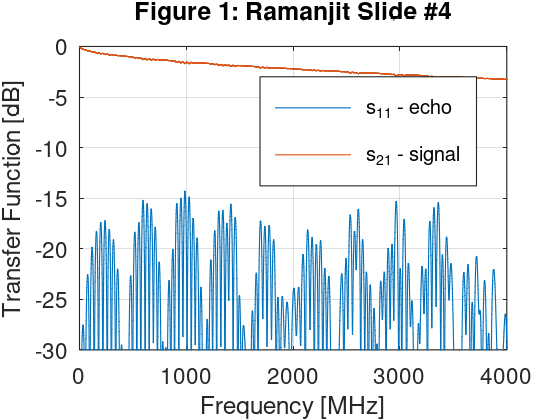
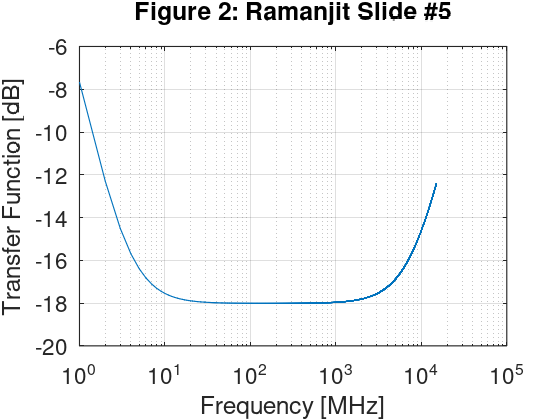
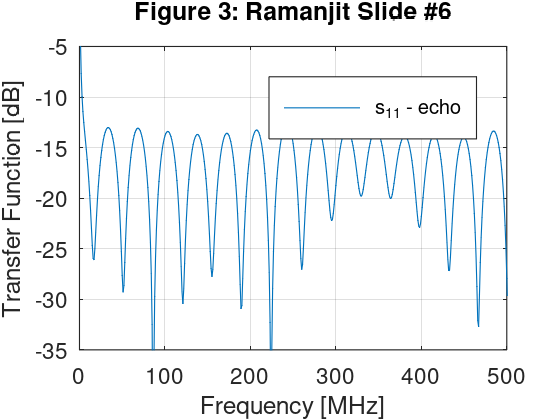
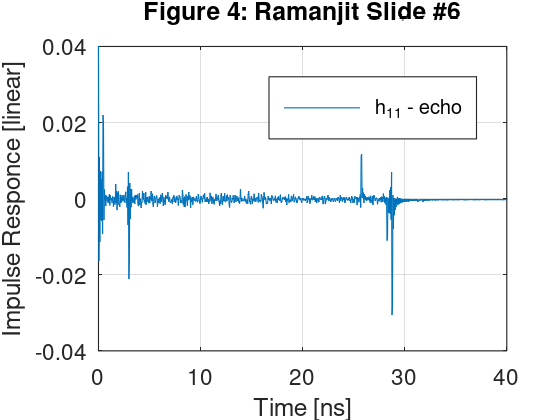
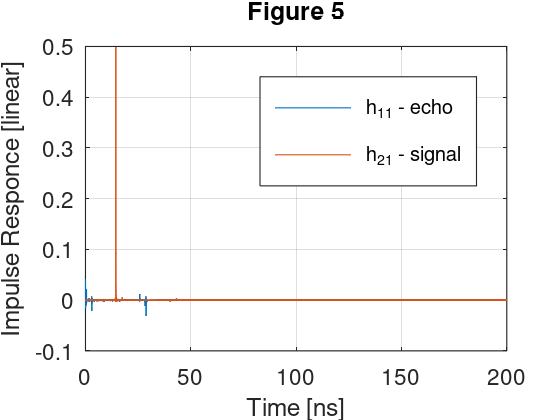
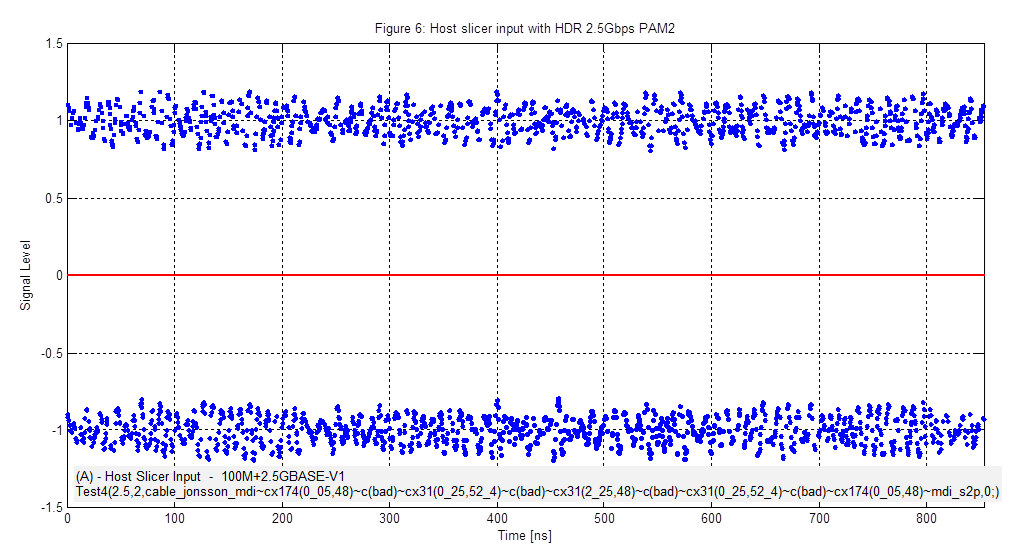
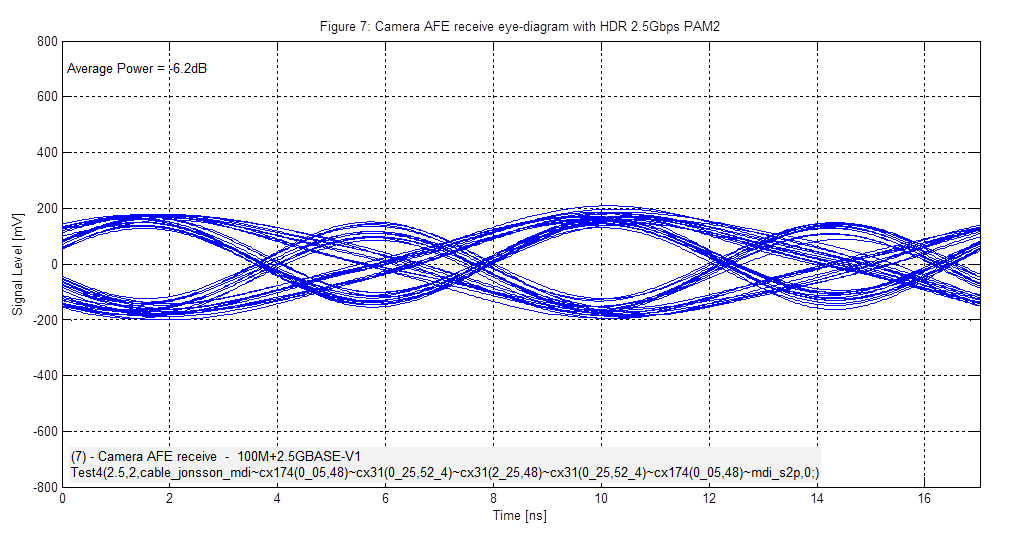
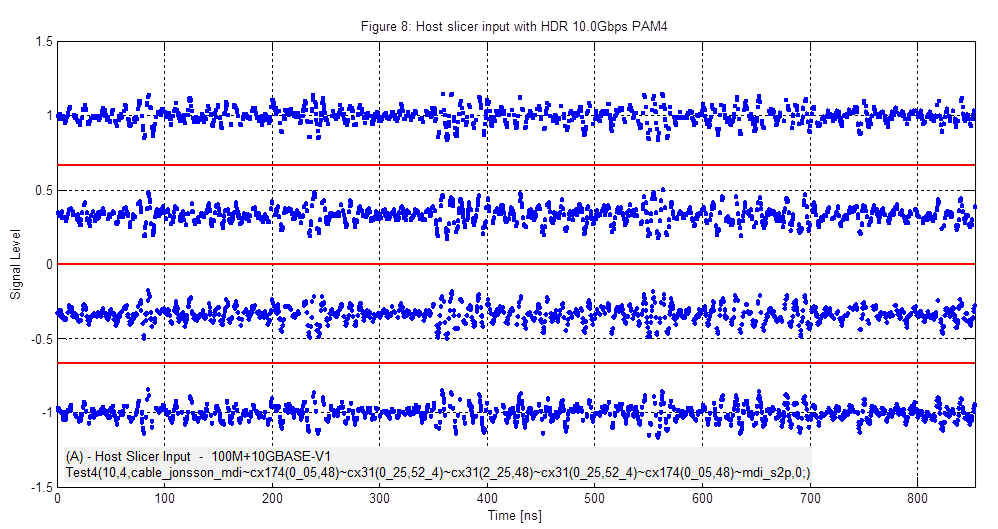
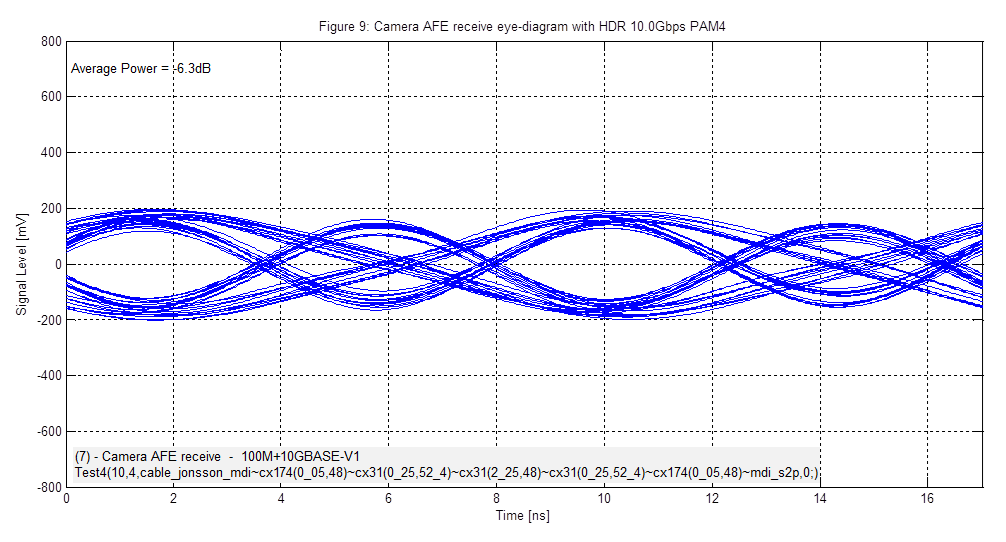
To unsubscribe from the STDS-802-3-ISAAC list, click the following link: https://listserv.ieee.org/cgi-bin/wa?SUBED1=STDS-802-3-ISAAC&A=1